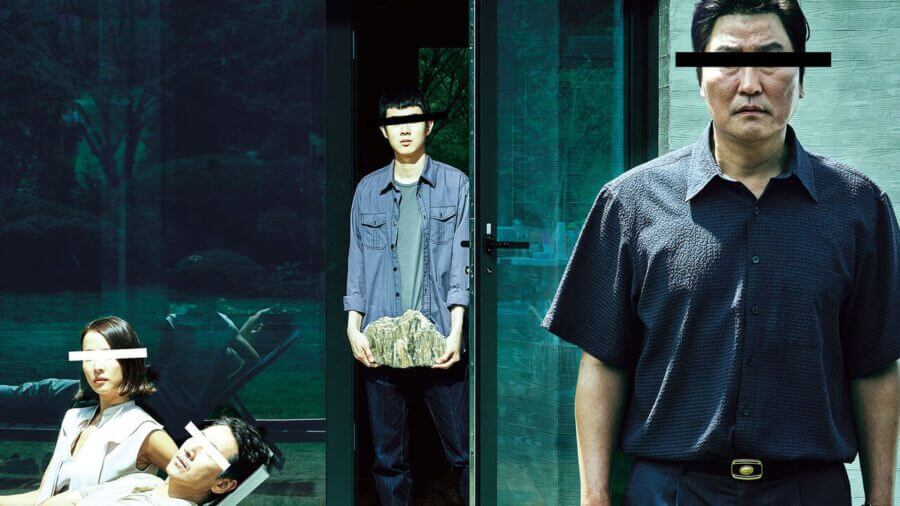By Afroditi A. Karagianni,
The term Korean cinema refers to the film industry of South Korea, which has become one of the most influential and globally recognized cinematic cultures in the world. In recent years, Korean cinema has reached newly found levels of popularity, with its more modern additions now enjoying the limelight worldwide. Having watched multiple movies of the cinematic category concerned over the years, I decided to dive deeper and investigate its influences and character (as someone with somewhat limited knowledge on this industry). What are the distinct characteristics shared amongst the films of the category? Are there any recurring topics and messages presented in them? And finally, what makes Korean cinema so compellingly special?
At first glance, one can tell that visually, Korean films significantly differ from foreign productions. In fact, Korean films are usually shot with alternate cameras, lenses or filters compared to those utilized by foreign filmmakers. This allows Korean productions to create their unique character and concurrently set their tone more efficiently.
Moving on, another characteristic shared by most movies of the category is the genre blending taking place in them. In fact, they often utilize multiple genres such as action, drama, romance, and horror in their storytelling. This fact makes them unpredictable, extremely entertaining, and rich plot-wise, which guarantees their viewers an unparalleled cinematic experience.

In addition, various Korean films tackle pressing social issues like classism, corruption, family dynamics, mental health, and historical trauma. As such, they pose as a reflection of the (Korean) society and reveal intricate details concerning people’s lives, struggles, and battles. As a result, those watching manage to gain a better understanding of the lives of those around them and how their own choices are often influenced by their interactions and experiences with others.
Moreover, while often serious, many Korean films incorporate elements of dark humor, absurdity, and satire in their scenarios. This makes them both thought-provoking and entertaining.
Furthermore, they typically emphasize strong character development, where the audience deeply connects with the emotional journey of the protagonist, even if the film’s tone is dark or tragic. In other words, we often watch the problematic and unlikable main characters gradually shift their behavior and reveal more honest and sensitive sides of themselves, in ways that make the audience entirely gripped.
Lastly, these productions are known for their intense pacing and mind-bending plot twists. With their help, psychological dramas delve deep into human emotions and societal pressures and manage to shock, appall, and move their audiences through their original and complex stories.
Korean Cinema consists of various notable movies. Below, I chose to talk about three, which are all to me incredibly special, entertaining, and worth-watching films.
- Parasite (2019)
Directed by Bong Joon-ho, the Academy winner called Parasite revolves around an unemployed lower-class family, that takes peculiar interest in another wealthy and glamorous family called Parks. In the beginning, the former seeks ways to work for the latter, and things get increasingly out of hand as they all find themselves tangled in an unexpected and tragic incident. Parasite blends comedy, thriller, drama, and social commentary, and is a film like no other. Truthfully, it is one of my favorite films ever and every time I watch it, I find it even more brilliant.

- Memories of Murder (2003)
Once again directed by Bong Joon-ho, Memories of Murder tells the story of two detectives in the 1980s, who attempt to solve a series of violent murder cases concerning women in South Korea. It is mainly a thriller, drama, and crime film, which makes one entirely gripped by its inventive storytelling. Honestly, it kept me on the edge of my seat the whole time. Mind you, it is rather violent and showcases sensitive topics, so viewers’ cautiousness is advised.
- The Chaser (2008)
Brought to you by Na Hong-jin, The Chaser focuses on Joong-ho, a dirty detective turned pimp in financial trouble, ever since several of his girls started disappearing. While trying to track them down, he finds that they were all called for the last time by the same client, and the chase between the two men begins. It is a film filled with action, which possesses many thrillers and crime elements that aid the story’s progress. At the same time, I appreciated the light it shed onto the deeply rooted issue of bureaucracy, and the way many public institutions –like the police force, as shown in the film– often fall victims of it and are subsequently hindered from doing their jobs effectively.
To conclude, Korean cinema is an innovative and evolving field that blends genres, explores complex themes, and offers powerful emotional experiences. With a focus on social commentary and cinematic artistry, Korean films have earned widespread acclaim and have significantly, positively influenced the global film culture permanently. Therefore, if you have yet to watch a film that belongs in the category, now is definitely the time.
Reference
- Parasite and the global arrival of Korean cinema. Taylor & Francis Online. Available here




